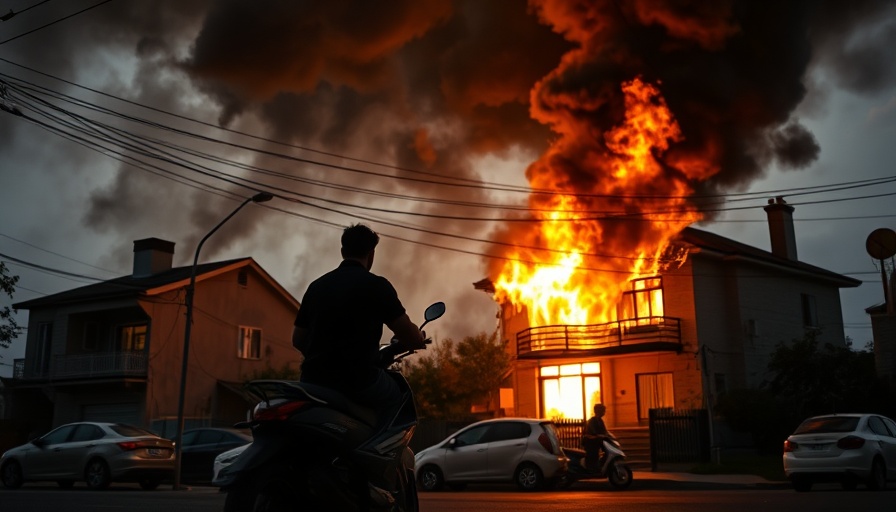
The Urgency of Accountability: Southern California Edison’s Role in Wildfires
In the wake of two devastating wildfires in Los Angeles, the U.S. government is taking a stand to hold Southern California Edison accountable. Federal lawsuits filed against the utility aim to recoup the costs associated with suppressing the Eaton Fire, a blaze that claimed over a dozen lives and destroyed thousands of properties, as well as the Fairview Fire that erupted in 2022. The federal government asserts that both infernos were exacerbated by the utility’s negligence regarding its power lines—an accusation that underscores a growing concern about public safety amid an increasingly volatile climate.
Understanding Liability and Its Implications for Policyholders
For those in South Carolina who have dealt with the complexities of the insurance claims process, this case serves as an important reminder of how utility negligence can impact not only victims of disasters but also the broader community in terms of insurance premiums and policies. As wildfire-related liabilities rise, many are left to grapple with insurance delays, confusing communications from insurers, and the aftermath of property damage claims. Increasing scrutiny on utilities like Southern California Edison may lead to significant shifts in how insurers handle fire-related claims.
Climate Change: The Underlying Catalyst for Higher Risks
The intersection of climate change and utility infrastructure negligence has never been more glaring. The federal government’s suit points to how extreme weather events—notably heightened wind conditions—contributed to the ignition and spread of the Eaton Fire. Such conditions are becoming more frequent; thus, the implications for property damage claims are profound. Homeowners must understand the risks associated with living in areas prone to wildfires and should familiarize themselves with the nuances of insurance policies that cover natural disasters.
What Happens After a Fire-Related Claim is Filed?
When catastrophic events like wildfires occur, the aftermath can be overwhelming for victims as they try to navigate the insurance claims process. Understanding the claim investigation timeline is crucial. It typically begins with an initial claim report, where detailed evidence of damages must be provided. For individuals unsure about how to file an insurance claim or what to expect, knowing how adjusters assess these situations can demystify the process.
Steps to Take If Your Claim is Denied
As seen in cases like Southern California Edison, when utility negligence leads to loss, victims may find themselves facing denied claims or offers far below expected compensation. Knowing how to dispute an insurance decision is vital. Documenting every interaction, knowing what to say when speaking to claims adjusters, and understanding the claims process in South Carolina can empower policyholders to advocate effectively for their rights.
Stay Informed: Be Proactive with Your Insurance Policy
Wildfires and the resulting damage are a stark reminder of the unpredictable nature of disasters. As the case against Southern California Edison unfolds, it’s crucial for South Carolinians to remain proactive about their insurance policies. The time to familiarize yourself with your coverage and obligations is now, before disaster strikes. Resources such as property damage claim checklists can help ensure you’re prepared to address any situation that may arise.
Awareness is power. Keeping informed about developments in wildfire liability and insurance policies can help protect your financial and physical well-being. Remember to follow up on your claims, adapt your insurance if necessary, and seek expert advice when needed.
 Add Row
Add Row  Add
Add 




Write A Comment